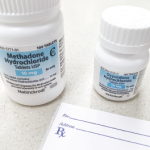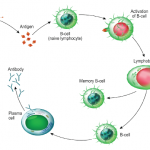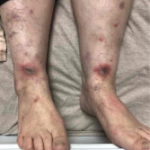Researchers know human leukocyte antigen (HLA) molecules affect susceptibility to disease in general, and immunological disease in particular. In the case of ankylosing spondylitis (AS), the risk is primarily associated with HLA-B27, with smaller effects from other HLA alleles. Current thinking is that AS is caused by the presence of a genetically primed host because…






